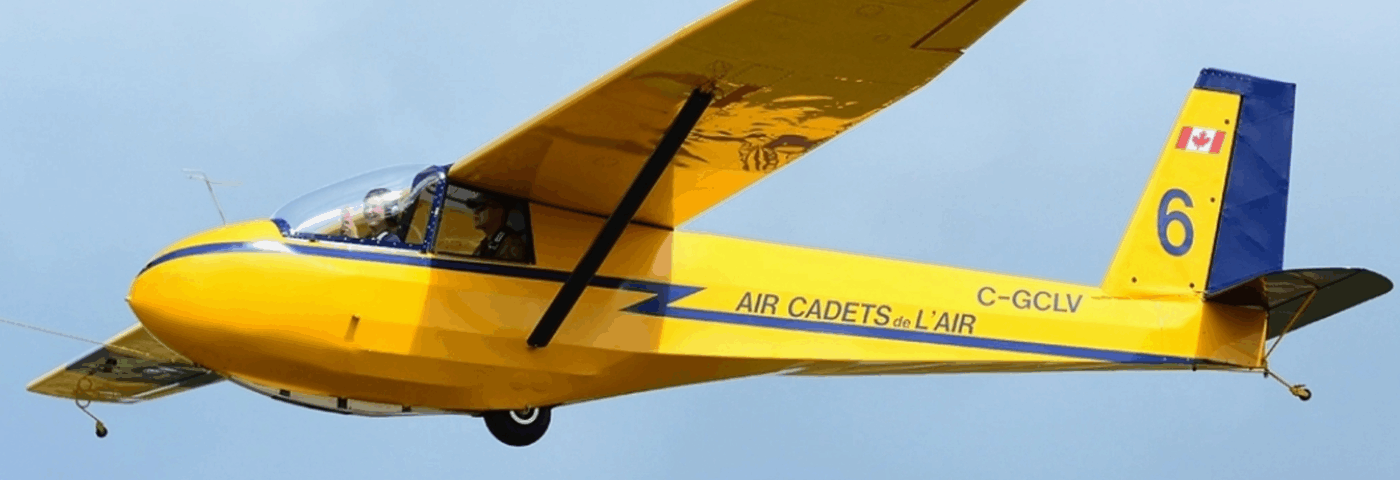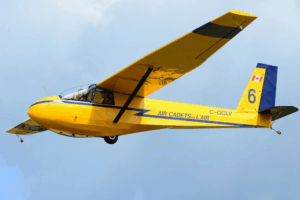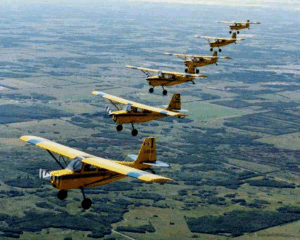By John Wyman, EAA 462533, Chapter 266 Montreal
As I alluded to in last month’s write-up, the Air Cadets are about much more than just learning how to fly. Obviously, not everyone gets their pilot license. A select few do, but many more stick with the program for a host of other reasons. Since its inception, its core values haven’t changed all that much – notably for keeping our youths engaged, forming good citizens, and ultimately (potentially, if the Cadet so chooses) providing an excellent platform to go on to the military for whatever branch they so desire. The larger Cadet program (Air, Army, and Navy) has roughly 50,000-plus kids with more than half of these in the Air Cadets.
The institution went through a rough period during COVID-19. Summer camps were cancelled altogether, and they’ve had a hard time returning staff levels to what they were pre-pandemic. Trust me, I’m shaking my head as I write that. The tow pilot that I spoke with believed that there were fewer Cadet Instructor Cadre (CIC) personnel resuming their old roles because of the interruption in the continuation of normal training from season to season. CIC (in uniform) and civilian instructors (no uniform) are paid Canadian Armed Forces (CAF) personnel, who are sometimes ex-Cadets, who’ve stayed on in the movement to train future Cadets.
Compounding the staff problem are less funds in the military budget (some programs were cut as a result) and an infrastructure that has been severely neglected over the years. An example of this is just trying to find suitable accommodation for the Cadets. It is said that this is getting harder with the degraded state of some buildings.
As Chris Hadfield said in his opening video promoting the Air Cadets, there are a multitude of summer camps that are available. Here’s a summary from their website:
Courses offered at Air Cadet summer camps include training in leadership, instructional techniques, music, marksmanship, flying, navigation, meteorology, air traffic control, ceremonial drill, physical education, computer skills, survival training, aerospace studies, and citizenship. Advanced Cadets can qualify for glider scholarships and powered flight scholarships.
Cadets may have the opportunity to travel to summer training centres located in different parts of Canada. In addition, selected Cadets go on exchange trips to countries such as the United Kingdom, Australia, Singapore, France, Sweden, Turkey, Hong Kong, Belgium, Japan, and the United States under an international exchange program. Exchange Cadets are selected on their standards in performance, fitness, and involvement in squadron activities.
These courses coupled with individual squadron activities like survival weekends and model building add to the Cadets’ overall curriculum of weekly parades and classroom.
Obstacles
Pierre Forgues (whom I relied on heavily for this article and is now the executive director of the League) and my contact with my former squadron both relayed to me that there are two additional problems facing many of the squadrons in Canada. One is donations and the other is facilities. The money is out there, but support from the communities is decreasing and the rents are going up!
One of the primary areas of concern is the cost of accommodations where squadrons hold weekly parades. These are often provided by the CAF or the Royal Canadian Legion at no cost where available. In the past, many schools provided gymnasiums at no cost, but now many are charging for their space. Where facilities must be rented, it is a challenge for the squadron to raise enough money to cover rent. He added, “The whole program relies heavily on community support and if that isn’t there, then the squadrons are on their own to raise the funds necessary to keep them alive.” This is where he personally felt that “communities and corporate Canada, especially the aerospace sector, could have a greater role in funding the League, because at the end of the day, both are benefiting the most from its continued existence.” Thankfully, there are many corporations who have stepped up to the plate to help out, but more would be welcome. About one third of squadrons in the country are supported by the local Legions, which are a great example of community support for the Cadets.
Loto Cadet
Some provinces have local fundraising drives (in the form of lotteries) that are used to replace the engines and propellers of the tow planes for the gliding program. Those are big bills these days. In Quebec, that’s pronounced “L’Auto” Cadet, a play on words to say it’s both a lottery and car give away in support of the flying program. I sold a lot of tickets in my day and am glad that it’s still going strong.
On the whole, the Air Cadet program offers kids a step up in life. It’s an example of how a structured curriculum (between its League and the CAF) can motivate and encourage our youths to excel. Many of our airmen and women today occupy a pilot seat in our airlines across the land because of it. Years ago, this became apparent when the three of us on an extended duty day to San Andreas, Columbia, (and back) all learned that we had all received our licenses to fly with the Air Cadets! I am encouraged by the Canadian Armed Forces’ commitment to bring the number of courses awarded to prospective pilots back up to pre-pandemic levels. After speaking with the League’s head office, I was left with the impression that their commitment to maintaining the “Air” in Air Cadets is as strong as ever. They continue to advocate that “flight training” is an essential part of the flying program. In the words of Mr. Forgues, “At the end of the day, everyone is really working hard to make the program work, from the League and the Canadian Armed Forces through to the communities. We’re always trying to do more (sometimes with less), and we continue to fight to get the resources we need from all people to make sure this program continues to thrive, as it has for many decades – so it’s well worth the investment in our youth for this country.”
Author’s final note: If, by chance, you’re looking for just the bullet points to the program, there’s a ton of info out there on the Air Cadets by just surfing the websites listed in Part 1 of this article and/or just Googling “Royal Canadian Air Cadets” in any search engine. Good hunting…
John Wyman, EAA 462533, Chapter 266 Montreal, is a passionate aviator. When he isn’t in the saddle at the airline, he can be found out at the airfield doing any number of things. He likes to fly gliders, practice aerobatics, write, work on airplanes, and fix stuff.



